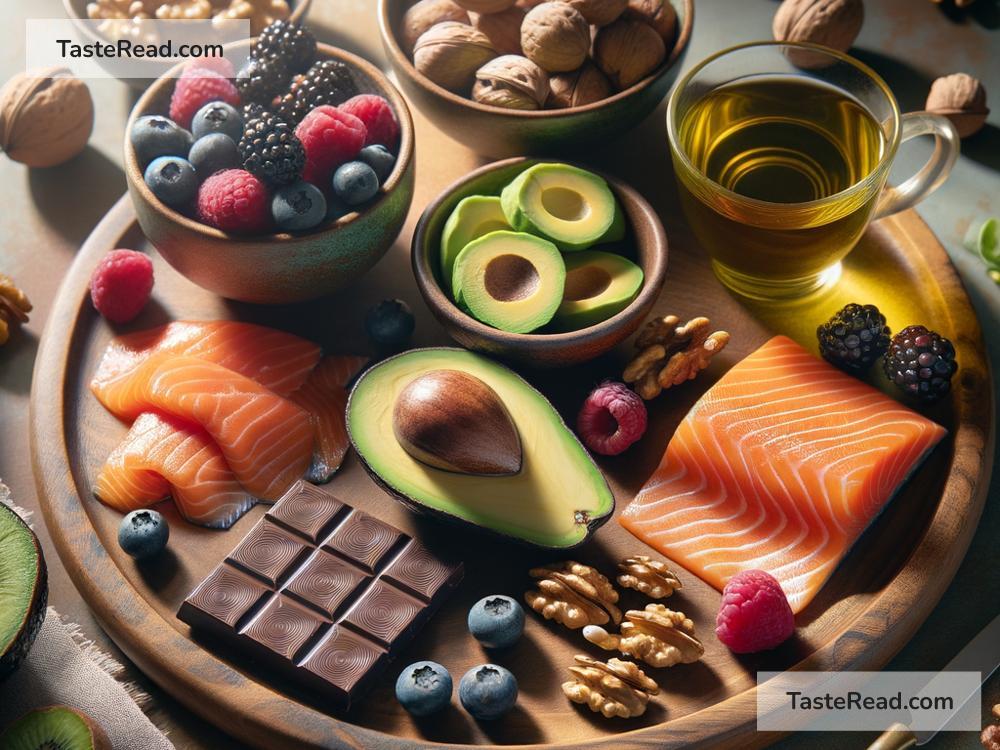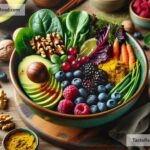Boost Your Social Skills with the Right Foods: A Simple Guide
Social skills are important for building relationships, connecting with others, and communicating effectively. Whether you want to feel more confident in conversations, improve your focus during social interactions, or simply be less stressed when meeting new people, the food you eat can make a difference. What you put into your body can affect your mood, energy, and even your ability to connect with others. In this blog, we’ll explore some easy, everyday foods that can help improve your social skills and make you feel better equipped for interactions.
1. The Power of Nutrients and Mood
Before diving into specific foods, let’s talk about how food affects your brain. Certain nutrients play a big role in supporting mental health. For example:
- Omega-3 fatty acids: These healthy fats are essential for brain function and can lower anxiety.
- B vitamins: These are great for boosting energy and reducing stress.
- Antioxidants: Found in fruits and vegetables, antioxidants protect your brain and improve your mood.
By including these nutrients in your diet, you can feel calmer, more confident, and energized during social situations.
2. Top Foods to Eat for Social Confidence
a. Fatty Fish
Fatty fish like salmon, mackerel, and sardines are rich in omega-3s. Omega-3 fatty acids support brain health and can ease feelings of anxiety or worry. When you’re less anxious, it’s easier to chat, make eye contact, and engage in conversations, whether it’s a meeting at work or a friendly gathering.
If fish isn’t your thing, flaxseeds, chia seeds, and walnuts are great plant-based alternatives!
b. Dark Chocolate
Who doesn’t love chocolate? Dark chocolate is more than a tasty treat—it contains compounds that improve brain function and mood. It boosts levels of serotonin, a feel-good chemical in the brain, to make you feel happier and calmer. Having a small piece of dark chocolate before a social event can help you stay relaxed and positive.
c. Bananas
Bananas are often called “nature’s comfort food” for good reason. They contain magnesium, which reduces stress and helps you feel more relaxed. Plus, they’re packed with vitamin B6, which is needed to produce mood-boosting chemicals like serotonin and dopamine. Bananas are a great choice if you’re nervous before giving a speech or attending a party.
d. Green Tea
If coffee makes you jittery, green tea might be your best friend. It contains L-theanine, an amino acid that promotes calmness and focus. This can help you stay present in conversations and listen more effectively. Sipping on green tea can also boost your mental clarity, making it easier to keep up in discussions.
e. Whole Grains
Whole grains—like brown rice, quinoa, oats, and whole wheat bread—give your body steady energy. These foods prevent blood sugar spikes, which can make you feel irritable or tired. With improved energy levels, you’ll feel more motivated and enthusiastic in your social interactions.
f. Blueberries
Blueberries are small, but they pack a punch! These antioxidant-rich fruits improve brain health by reducing inflammation and boosting concentration. They can help sharpen your mental focus, making it easier to stay engaged in conversations, remember names, and read social cues.
g. Nuts and Seeds
Nuts and seeds (like almonds, sunflower seeds, and pumpkin seeds) are loaded with healthy fats, magnesium, and vitamin E. They help reduce stress, boost your mood, and provide energy that lasts. Keep a handful of nuts handy as a quick snack before meeting people to feel confident and alert.
3. Foods That Affect Social Skills Negatively
While certain foods can improve your social skills, others can make things harder:
- Sugary snacks and drinks: While sugar gives you a temporary energy boost, it can make you crash later, leaving you tired and irritable.
- Processed foods: Junk food like chips and fast food can make you feel sluggish and unfocused.
- Too much caffeine: While coffee can energize you, too much caffeine can make you feel jittery, anxious, or nervous.
Moderation is key when it comes to these foods. Balance your diet with brain-boosting choices to feel your best socially.
4. The Importance of Staying Hydrated
Water often gets overlooked, but it’s vital for your brain. Dehydration can make you feel tired, distracted, or even cranky—none of which are helpful when trying to connect with others. Drink plenty of water throughout the day to stay sharp and in a good mood.
5. Final Tips for Better Social Interactions
Eating the right foods is a great way to support your brain and mood, but it’s only one part of improving social skills. Here are a few extra tips:
- Get enough sleep: Rest is essential for feeling alert and focused in conversations.
- Practice mindfulness: Staying mindful helps you listen actively and respond thoughtfully.
- Stay confident: Remember, everyone gets nervous sometimes. Focus on your positive qualities and enjoy connecting with others.
Conclusion
Improving your social skills doesn’t have to be complicated. By choosing brain-boosting foods like fatty fish, dark chocolate, bananas, and whole grains, you can support your mood, energy, and focus during interactions. Avoid sugary or overly processed foods, stay hydrated, and pair your healthy diet with enough sleep and mindfulness to feel your best.
So, next time you’re preparing for a social gathering or an important conversation, consider fueling yourself with foods that make a difference. You’ll not only feel better but also show up as your most confident and capable self. Happy connecting!


